Problem-solving abilities Addition & Subtraction Worksheets for Ages 6-9 - Page 2
29 filtered results
-
From - To
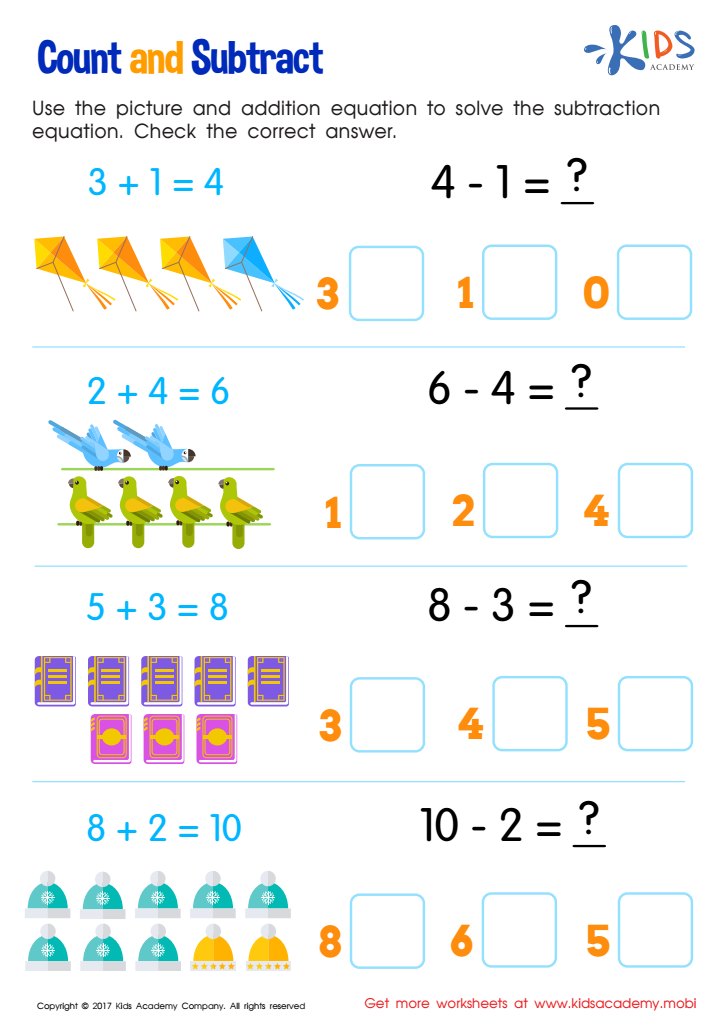

Count and Subtract Worksheet
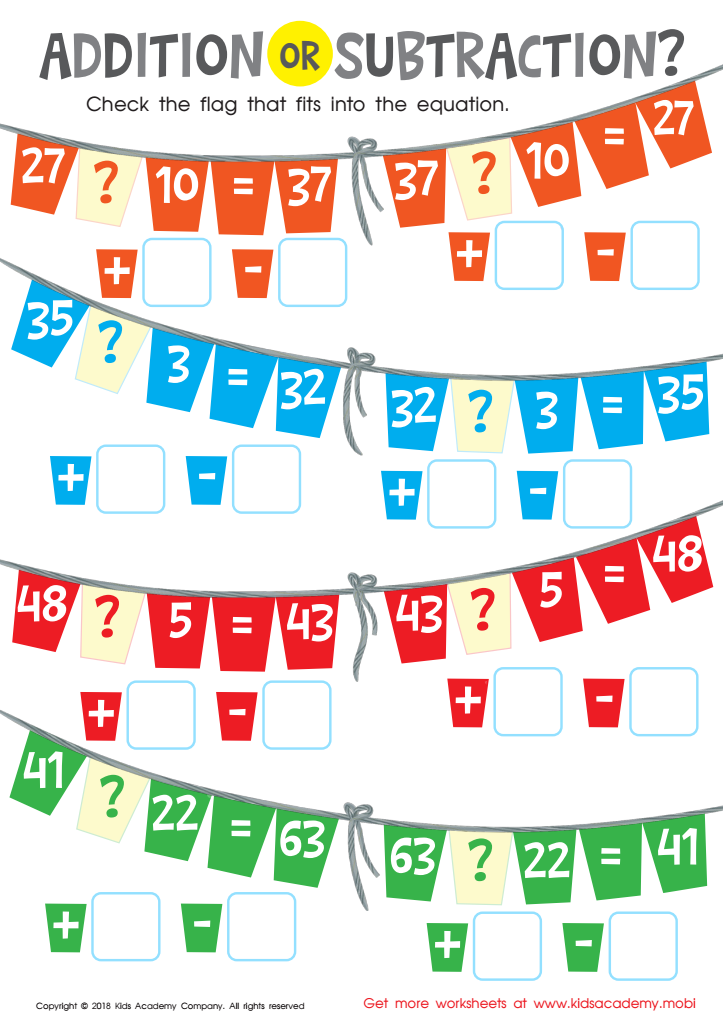

Addition or Subtraction? Worksheet
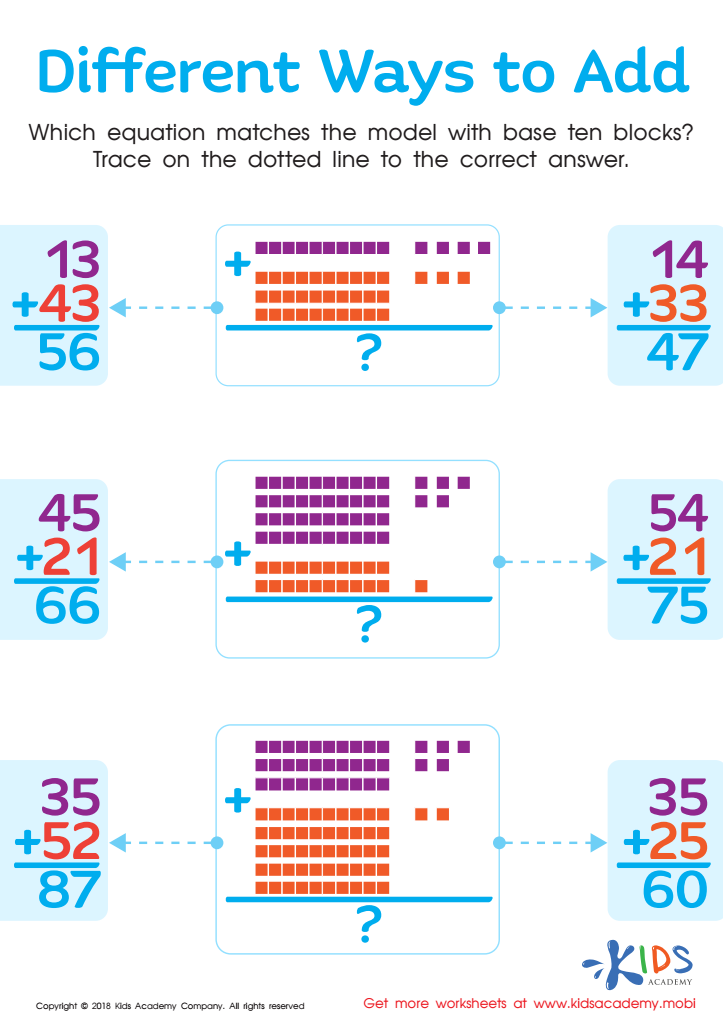

Different Ways to Add Worksheet
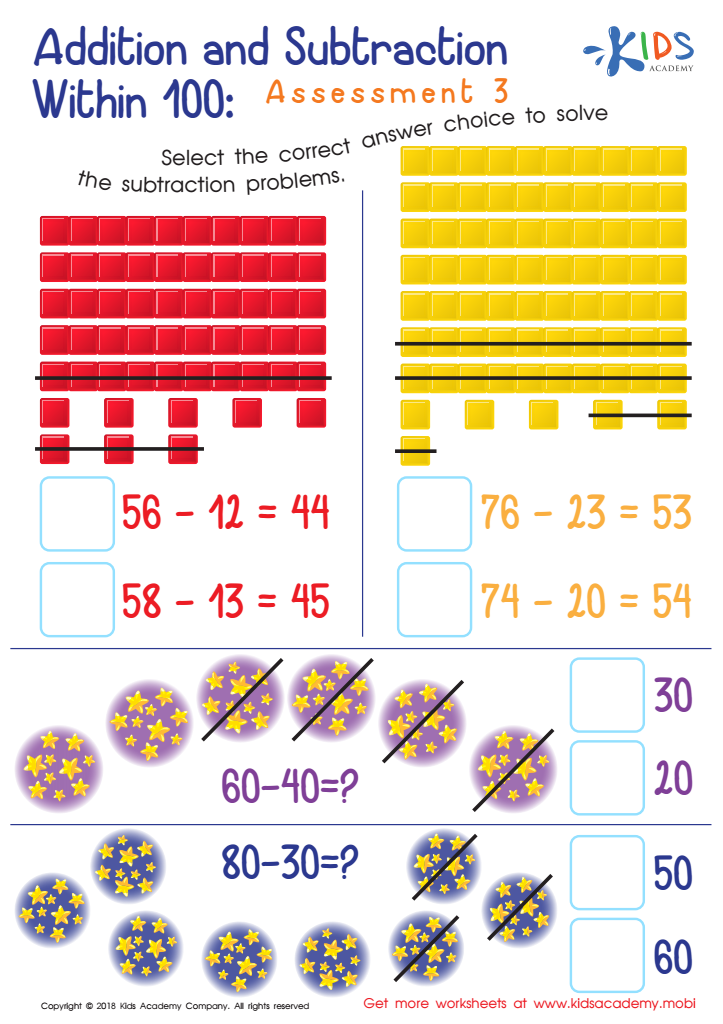

Addition and Subtraction Within 1: Assessment 3 Worksheet
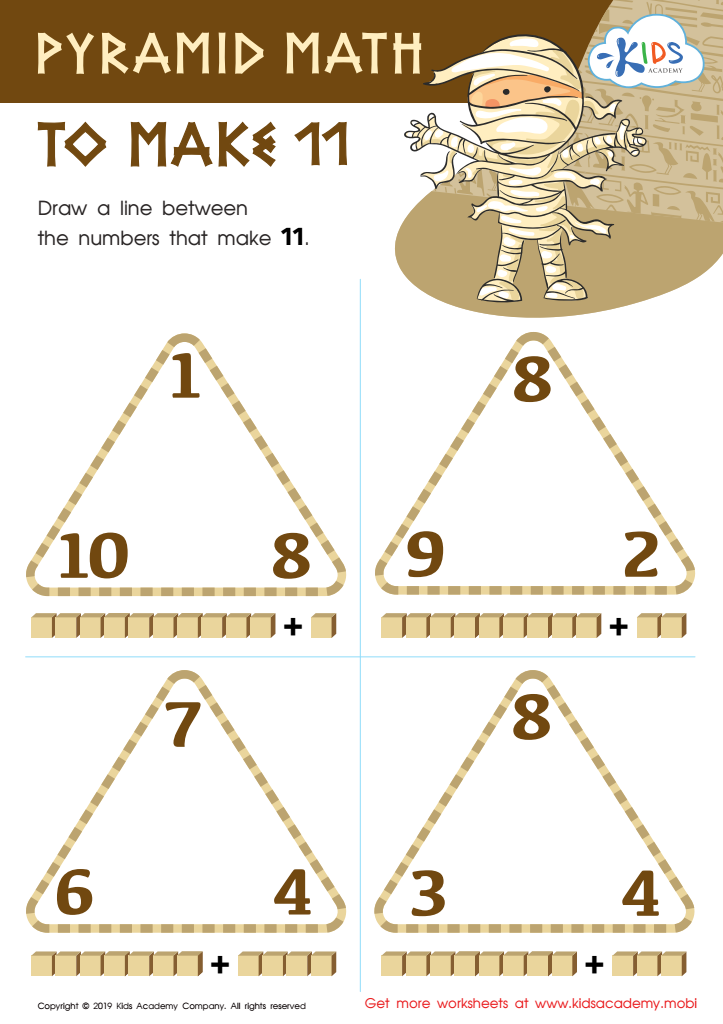

Pyramid Math to Make 11 Worksheet
Parents and teachers should prioritize developing problem-solving abilities in addition and subtraction for children aged 6-9 because these foundational skills are essential for their overall cognitive development and academic success. Mastery of addition and subtraction forms the bedrock of arithmetic and directly influences the ability to grasp more complex mathematical concepts in the future.
For young learners, being able to solve problems involving adding or subtracting fosters critical thinking and logical reasoning. As children engage in solving mathematical puzzles, they learn to approach problems methodically, enhancing their analytical skills. This process also boosts their confidence and persistence, which are vital life skills beyond academics.
Furthermore, these problem-solving abilities have practical real-world applications. Everyday tasks like calculating change, dividing items among friends, or measuring ingredients in a recipe become easier when children have a firm grasp of basic math skills. Encouraging proficiency in these areas from an early age sets a positive trajectory for continued learning and success. Moreover, early math skills strongly correlate with future achievement in science, technology, engineering, and mathematics (STEM) fields.
By nurturing problem-solving abilities in addition and subtraction, parents and teachers help children build a solid mathematical foundation, promote independent thinking, and prepare them for a wide array of future challenges and opportunities.
 Assign to My Students
Assign to My Students
















